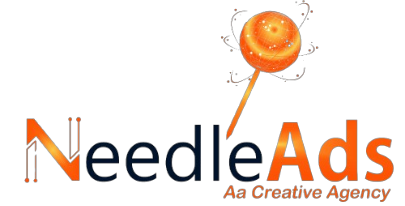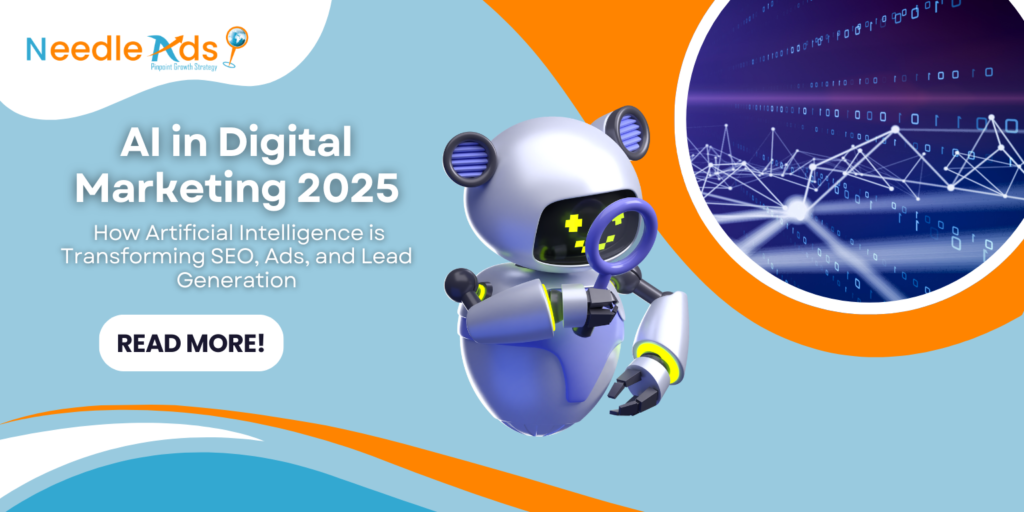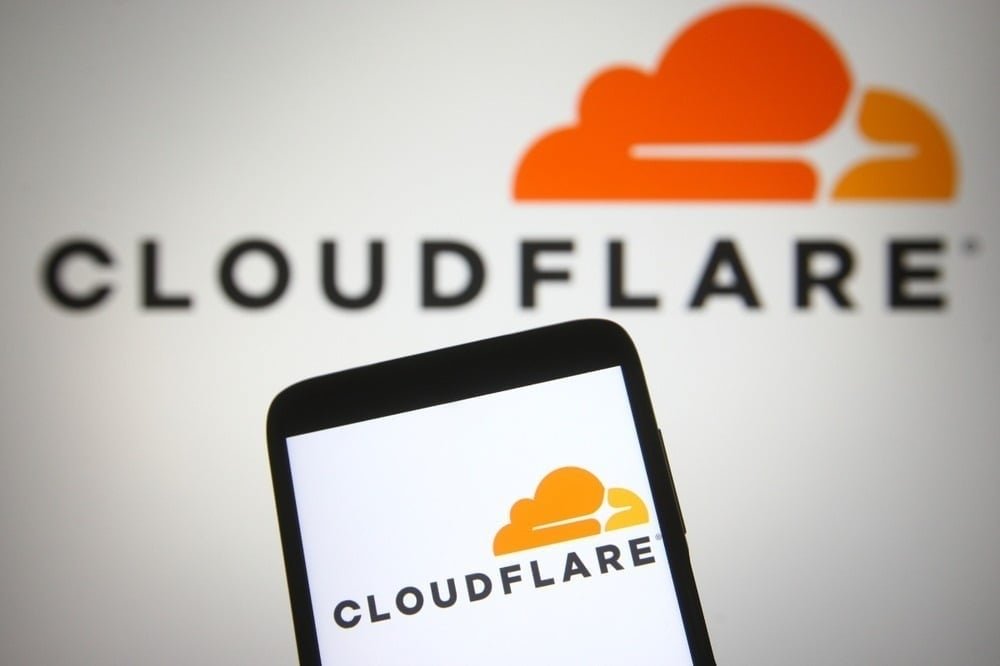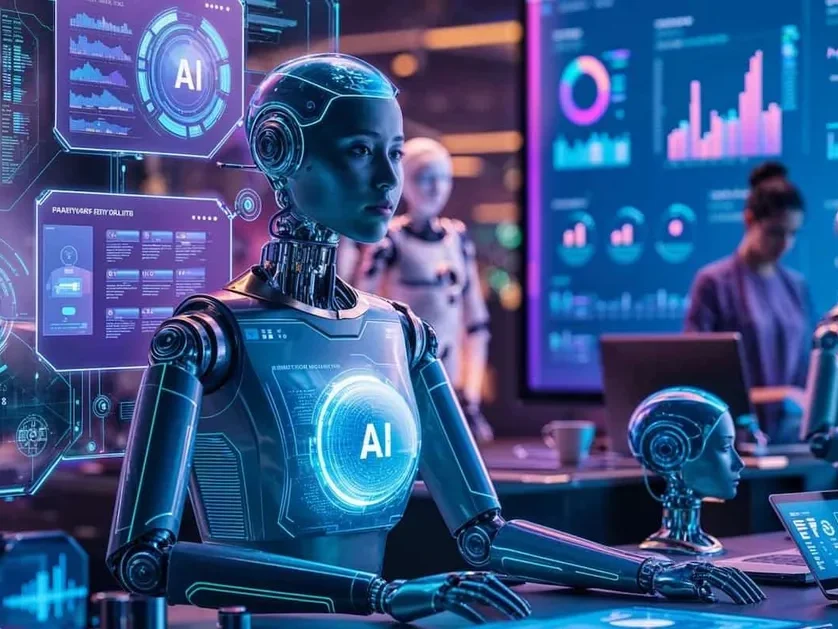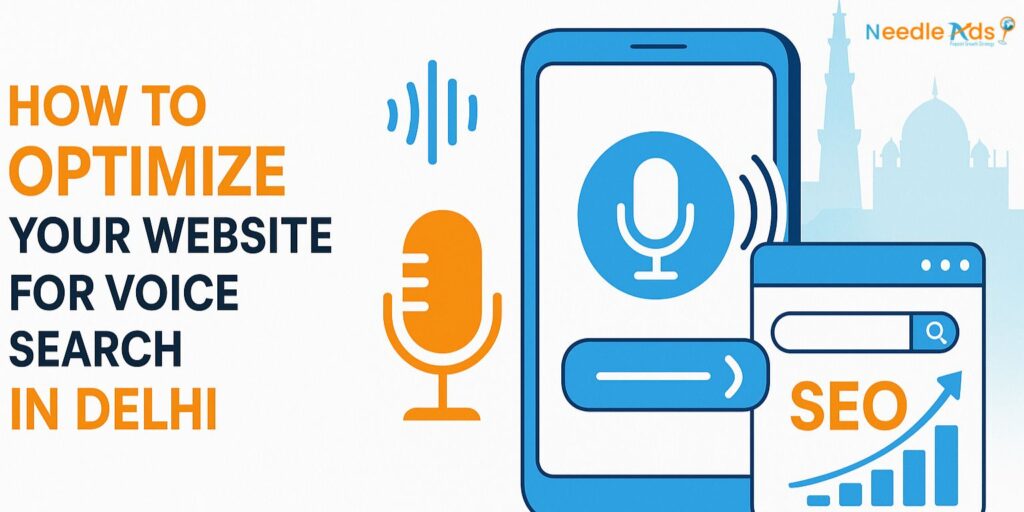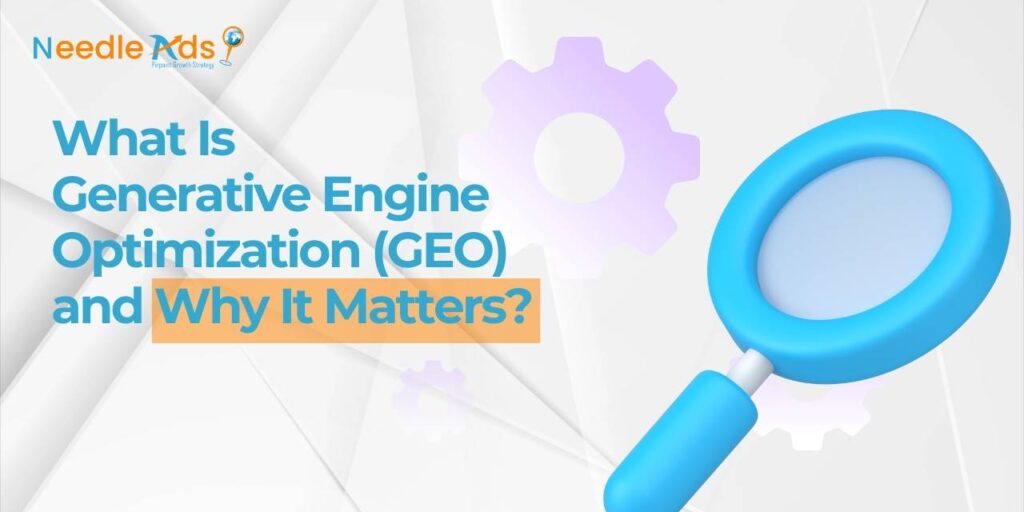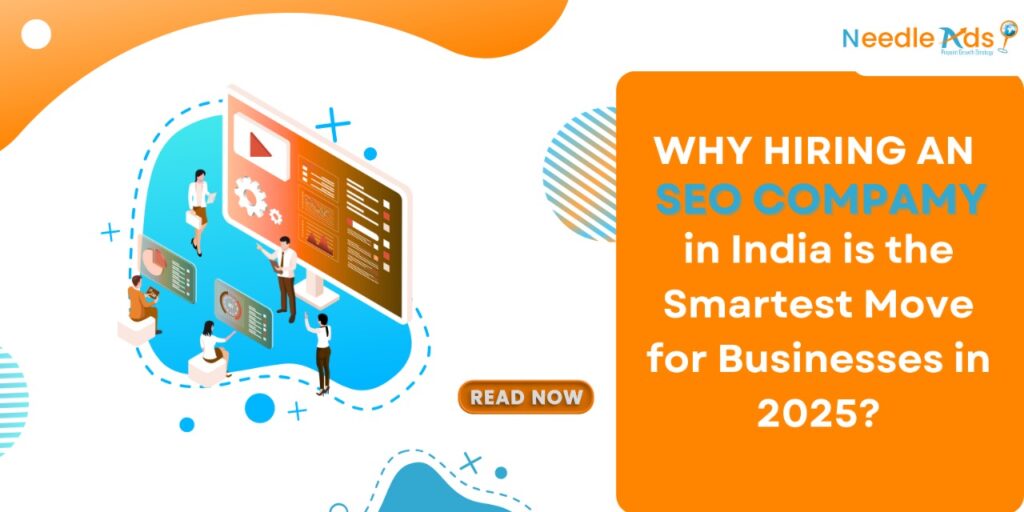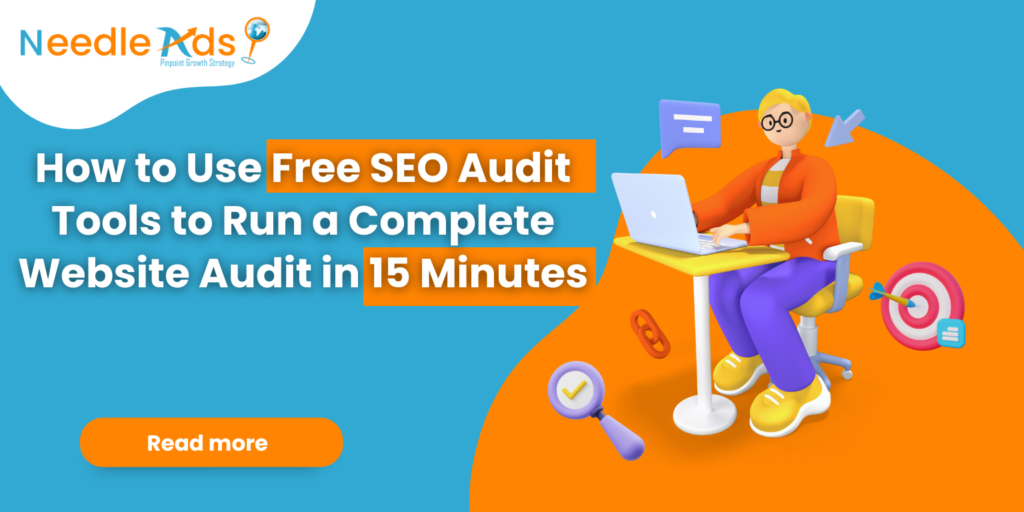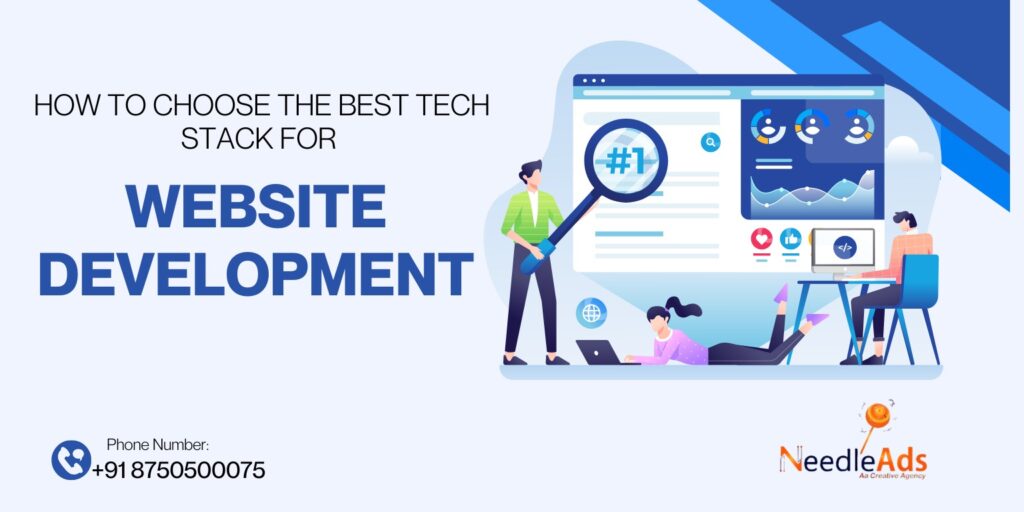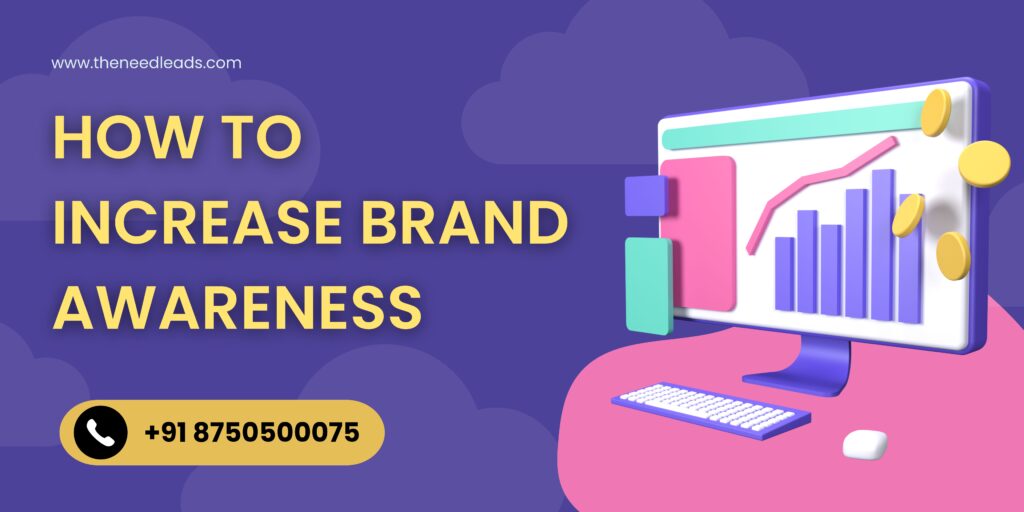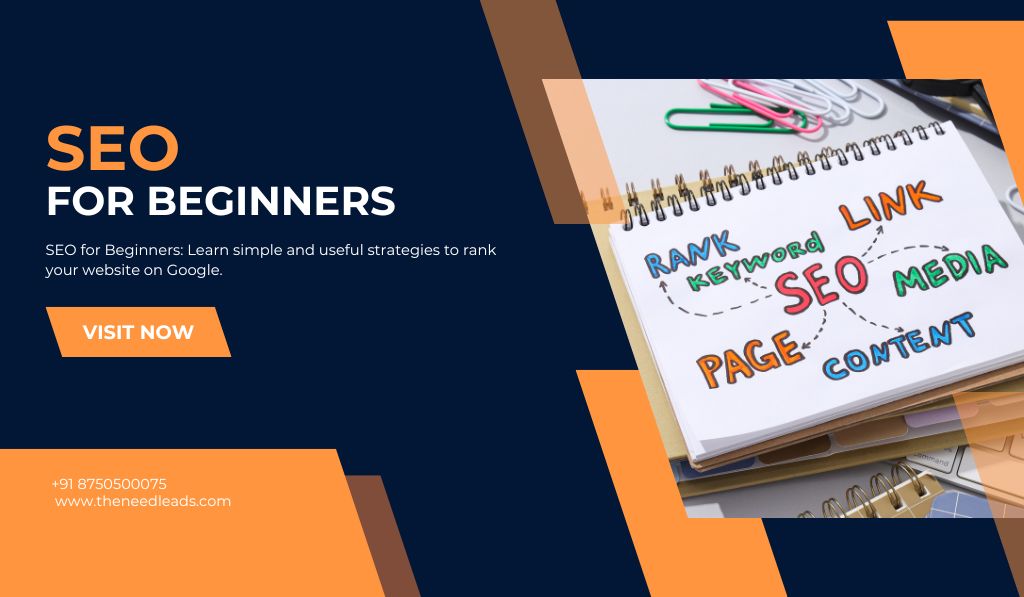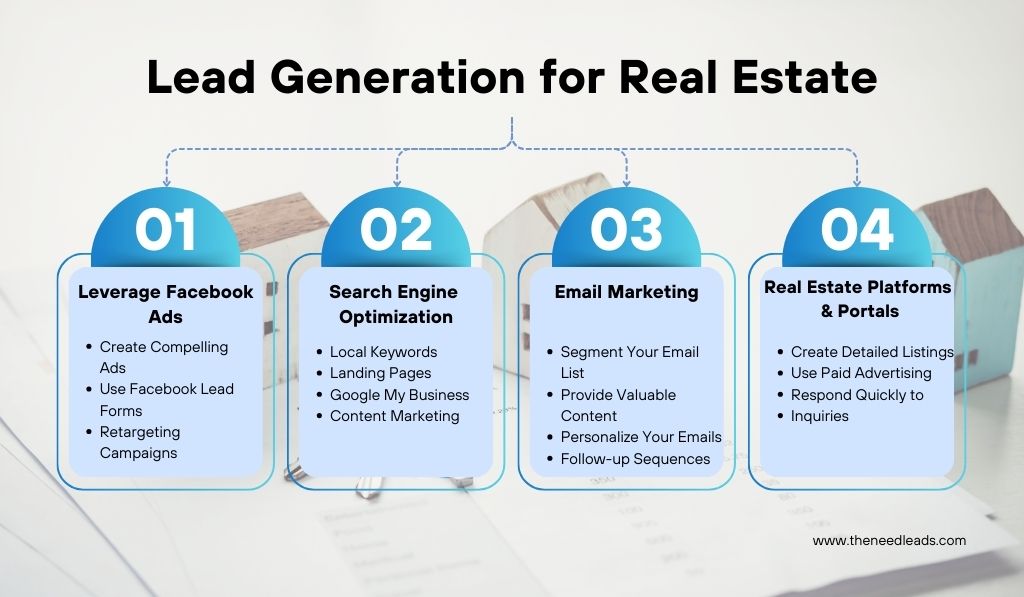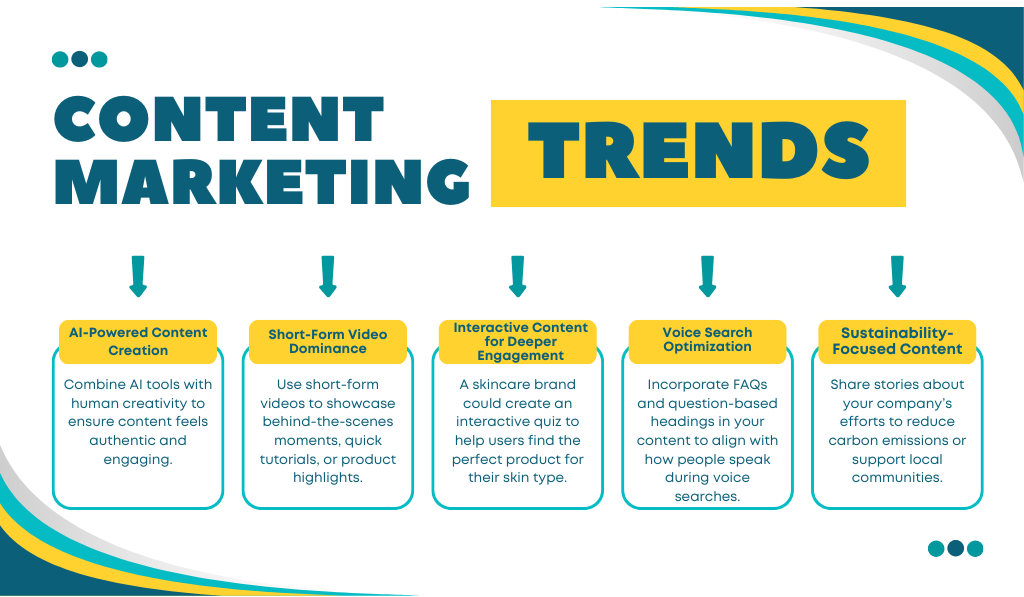In 2025, Artificial Intelligence (AI) is not just a buzzword; it is revolutionizing the way businesses approach digital marketing. AI’s presence is evident across various facets, from SEO and paid ads to content optimization and lead generation. This blog will explore how AI is transforming the landscape of digital marketing, focusing on its applications in SEO, advertising, content creation, and lead generation.
Understanding the Role of AI in Digital Marketing
AI in digital marketing has become a pivotal tool for brands seeking to enhance customer engagement and optimize their online presence. The role of AI is manifold, influencing everything from consumer behavior predictions to automating routine tasks. By leveraging AI, digital marketers can make smarter decisions, execute strategies at scale, and personalize marketing efforts with precision.
AI-Powered SEO: The Future of Search Engine Optimization
AI has greatly impacted SEO, particularly with the development of AI-powered SEO tools that assist in keyword research, content optimization, and performance tracking. AI-powered SEO enables marketers to automate tasks such as meta tag creation, content analysis, and link-building, saving valuable time and ensuring that efforts are aligned with search engine algorithms.
In 2025, AI tools for SEO are expected to be even more sophisticated, helping businesses maintain a competitive edge in search rankings. AI-driven platforms will analyze competitors, track keyword performance, and suggest improvements, all while adapting to Google’s evolving search algorithms.
To stay ahead in SEO and make your business more visible, explore our Local SEO Services to optimize your website for local searches.
Examples of AI-Powered SEO Tools in 2025
Several tools are already reshaping SEO practices, making optimization faster and more efficient. Some examples include:
- SurferSEO: A tool that uses AI to analyze and optimize content for specific keywords, focusing on improving the content’s structure to boost rankings.
- Clearscope: An AI-driven content optimization tool that helps marketers find related keywords and optimize their content accordingly.
- Frase: This AI tool not only helps with content creation but also with strategic SEO, providing content recommendations based on user intent.
By using AI-powered SEO tools in 2025, businesses can automate tedious SEO tasks, allowing marketers to focus on creating high-quality content and strategies that resonate with their audience.
AI Tools for Content Writing: Enhancing Efficiency and Quality
As digital marketing becomes increasingly data-driven, AI tools for content writing are becoming essential for marketers. These tools leverage machine learning and natural language processing to generate high-quality, optimized content in a fraction of the time it would take a human writer.
AI tools for content writing like Copy.ai, Jasper, and Writesonic help marketers create blog posts, social media content, product descriptions, and more. These tools analyze keyword trends, audience engagement, and competition to ensure that the content produced is relevant, engaging, and SEO-friendly.
In 2025, as AI tools for content writing continue to evolve, businesses can expect even greater capabilities, such as personalized content creation and content optimization based on specific audience segments. By using these tools, marketers can save time, improve content quality, and boost their overall SEO efforts.
Explore more on optimizing content and improving your marketing efforts with our SEO for Beginners guide.
AI Content Optimization: Enhancing Engagement and Relevance
AI’s role in content optimization is perhaps one of its most influential contributions to digital marketing. AI tools are designed to refine the content based on SEO best practices, improving its relevance to the target audience. Whether it’s refining blog posts or optimizing landing pages, AI content optimization tools assist in making content more engaging and effective.
AI content optimization tools analyze content quality, readability, keyword density, and overall structure. For example, Grammarly uses AI to help marketers enhance the grammar, tone, and clarity of their content, while tools like MarketMuse ensure the content is highly relevant and optimized for search engines.
As businesses aim for better user experiences, AI will continue to play a major role in ensuring that content remains high-quality, readable, and optimized for AI-driven search engines.
To stay ahead in this evolving landscape, partnering with expert SEO services in Hyderabad can help businesses leverage AI tools for smarter content optimization and improved search performance.
AI in Advertising: A Game Changer for PPC Campaigns
Paid search advertising, especially on platforms like Google and Meta, has experienced a significant shift with the integration of artificial intelligence advertising. AI helps advertisers reach their target audience more effectively by automating ad placements and optimizing bids in real-time based on user behavior.
For businesses looking to take their PPC campaigns to the next level, discover more about PPC services in Delhi.
AI Advertising Strategies for 2025
By 2025, AI advertising strategies will be even more advanced. Platforms like Google Ads and Meta Ads are incorporating AI to improve targeting, optimize ad delivery, and enhance the user experience.
Here are some key AI advertising strategies:
- Predictive Analytics: AI will analyze customer data to predict future buying behaviors, enabling marketers to target the right individuals at the right time.
- Dynamic Ad Creation: AI will automate the creation of personalized ads, tailoring content based on individual preferences, search history, and demographics.
- Budget Optimization: AI will continuously optimize ad spend, ensuring that marketers get the best ROI by automatically adjusting bids in response to changing market conditions.
AI-powered advertising will not only help businesses increase their reach but also optimize their spending to ensure that every dollar spent on ads counts.
How AI is Changing Lead Generation
Lead generation is one of the most crucial aspects of digital marketing, and AI is changing lead generation in profound ways. The use of artificial intelligence-driven tools has enabled firms to identify potential leads, predict conversion rates, and personalize outreach efforts based on vast amounts of data.
AI in lead generation can help marketers capture more qualified leads by predicting which leads are most likely to convert based on their behavior and engagement with previous campaigns. AI-powered chatbots and virtual assistants are also revolutionizing how businesses interact with potential customers, providing them with immediate responses and guiding them through the sales funnel.
In 2025, AI-driven lead generation will be more advanced, with automated systems that can identify high-potential leads, send personalized emails, and even schedule follow-up meetings—drastically reducing the workload for sales teams.
AI Search Assistants: Impact on SEO
As search engines continue to evolve, AI search engines and AI search assistants will have an even greater impact on SEO. AI-powered search assistants, such as Google’s Assistant and Siri, use natural language processing (NLP) to understand and respond to user queries more effectively.
As voice search and AI-driven search assistants become more prevalent, businesses’ SEO strategies will need to change. Optimizing content for voice search and natural language processing will become essential for marketers in 2025.
AI search assistants will continue to shape the SEO landscape, as search engines become better at understanding user intent and delivering highly personalized search results.
For businesses looking to explore the power of AI in their SEO strategies, our blog on Google Ads vs. Meta Ads compares the strengths of both platforms.
The Future of SEO with AI
There appears to be a deep connection between SEO and artificial intelligence in the future. AI will not only continue to play a role in content optimization, but it will also influence how content is discovered, indexed, and ranked. A more relevant and personalized search engine experience will be enhanced with the implementation of AI.
Businesses will need to be agile, continuously adjusting their SEO strategies to ensure they are aligned with AI-driven search engines. AI will also play a larger role in semantic search, helping search engines understand the context behind user queries, rather than just focusing on keywords.
Adapting SEO for AI Search Engines
Artificial intelligence algorithms are becoming more prevalent, thereby forcing SEO professionals to adapt their strategies. Adapting SEO for AI search engines involves focusing on high-quality, engaging content that aligns with user intent and delivers value. As AI continues to evolve, SEO will need to be more context-aware and capable of understanding the broader meaning behind search queries.
Conclusion
AI in digital marketing is transforming how businesses approach SEO, content optimization, advertising, and lead generation. As we move further into 2025, the influence of AI will only increase, creating more opportunities for businesses to optimize their marketing strategies and reach their target audience more effectively. By leveraging AI-powered SEO tools, advertising strategies, and lead generation techniques, businesses can stay ahead of the competition and ensure their marketing efforts are both efficient and impactful.
FAQs
Q1. What is the role of AI in digital marketing?
AI enhances digital marketing by automating tasks, optimizing content, predicting customer behavior, and improving targeting, leading to better marketing results.
Q2. How does AI impact SEO?
AI helps automate tasks like keyword research, content optimization, and performance tracking. In addition, search engine algorithms are adapted in order to align SEO strategies.
Q3. What are AI-powered SEO tools?
AI-powered SEO tools are software platforms that use artificial intelligence to automate SEO tasks, such as keyword analysis, content optimization, and backlink tracking.
Q4. How does AI improve lead generation?
AI analyzes user data to predict which leads are most likely to convert, automating outreach and follow-ups, and enabling more efficient lead generation.
Q5. What is the future of SEO with AI?
The future of SEO will involve AI-enhanced search engines that better understand user intent, focus on context, and deliver personalized search results.
Q6. When it comes to AI search engines, how can businesses adapt SEO?
A business’s SEO strategy will only be successful if it emphasizes high-quality, context-rich content and optimizes for natural language processing.
